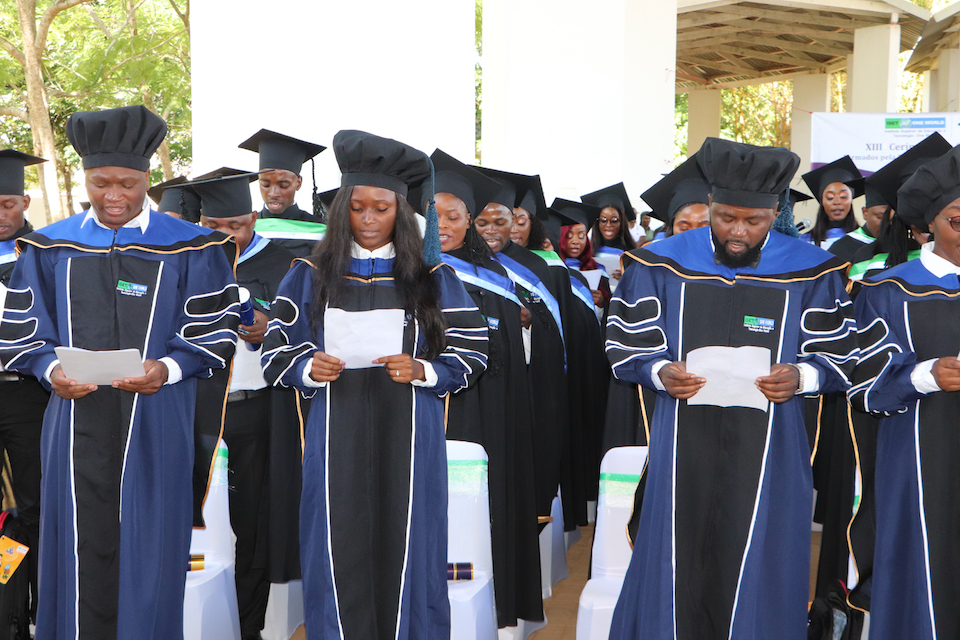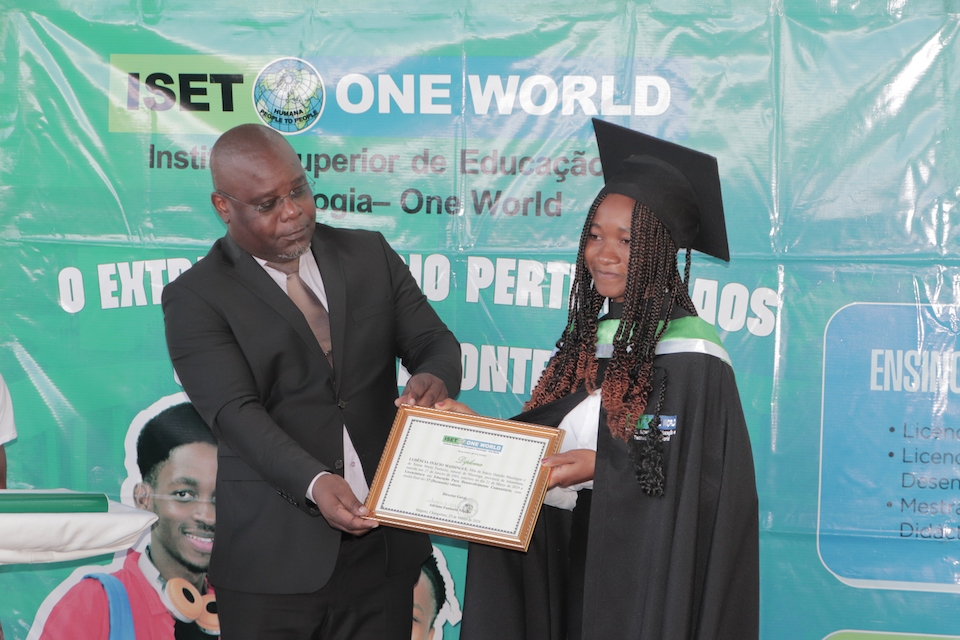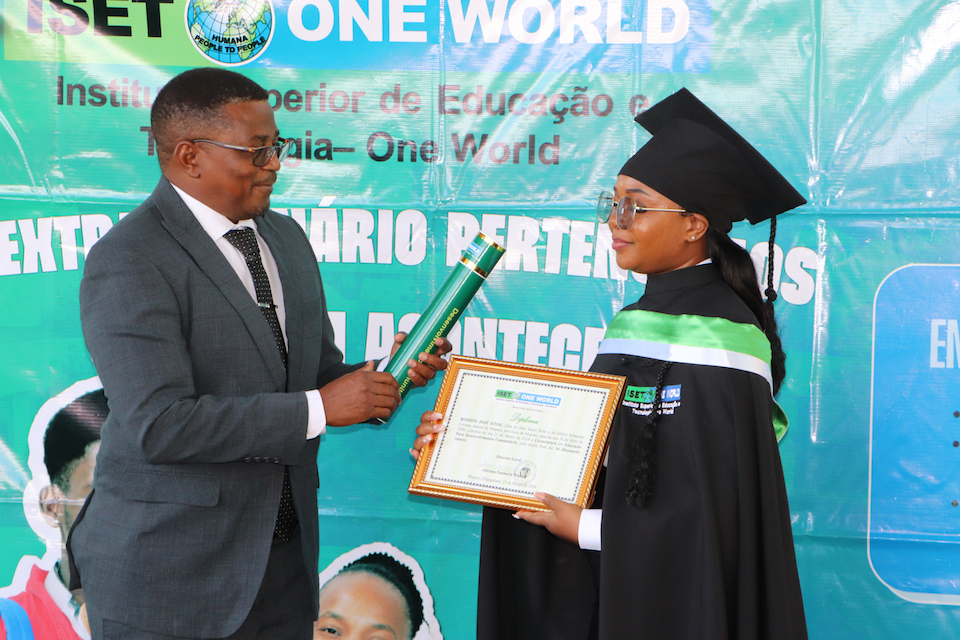The Higher Institute of Education and Technology (ISET One-World) held its 13th graduation ceremony on 12 April at its facilities in the district of Namaacha, Changalane Administrative Post, placing forty new senior staff with bachelor's and master's degrees on the labour market.

The graduates are 35 undergraduates and five masters graduates in Pedagogy, Environmental Education, Education for Community Development and a masters in Pedagogy and Didactics in both face-to-face and distance learning modalities.
The solemn act was led by the representative of the Secretary of State in Maputo province, Dr Naldo Manuel Horta, who in his speech challenged the graduates to be guided by a spirit of entrepreneurship through the creation of self-employment.

"Faced with the challenges imposed on you, you are challenged to work hard to find local solutions, to lend all your knowledge and expertise during the course of your duties, as well as to work hard in the incessant search for the necessary qualifications and to improve the quality of life of the populations where you live, the country and the world, given that we are in a context of adopting an entrepreneurial spirit based on the creation of self-employment," he said.
For his part, the general director of ISET One-World, Adriano Niquice, said that over the 25 years of its existence, the institute has graduated 1264 bachelors and 10 masters, totalling 1274 graduates. He also said that ISET One-World is committed to the two types of teaching as a way of promoting the expansion of services, as well as helping to cover the needs or demands of the population.
Niquice referred to the teaching philosophy that marks the institution's presence in the field of Higher Education Institutions in the country.
"We are a distinctive brand: how we teach and learn (because of our training methodology), how we promote human emancipation, especially for students, solidarity with communities, the management of collective life, the work and study environment... everyone who comes here leaves with a great deal of nostalgia," she emphasised.

On the occasion, ADPP's executive director, Birgit Holm, said that the institute prepares young people to work in various sectors, promoting the country's development. She also said that in addition to theoretical lessons, the students take part in practical activities in the communities, as well as travelling to other countries to gather experiences that can be put into practice in Mozambique.
"These practices bring advantages to the students and provide them with multidisciplinary knowledge, because by working on the ground with the communities, they learn to solve the problems that arise during their journeys," he said.

